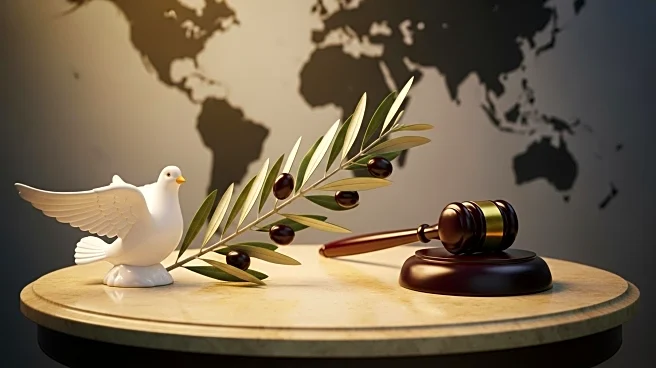What is the story about?
What's Happening?
President Trump is visiting Israel following a ceasefire deal brokered by the U.S., Egypt, and Qatar. The agreement involves the release of 48 hostages by Hamas, with 20 believed to be alive, and the return of 28 bodies. In exchange, Israel will release 250 Palestinian prisoners and over 1,700 detainees held without charge. Trump will address Israel's parliament and then travel to Egypt for a peace summit with world leaders. The ceasefire has allowed aid trucks to enter Gaza, where displaced Palestinians are returning to devastated areas.
Why It's Important?
The ceasefire marks a critical moment in the two-year conflict between Israel and Hamas, potentially leading to lasting peace in the region. The release of hostages and prisoners is a significant humanitarian achievement, improving relations between Israel and Palestine. Trump's involvement underscores the U.S.'s role in Middle East diplomacy, with potential impacts on international relations and regional stability. The deal also highlights the ongoing humanitarian crisis in Gaza, emphasizing the need for reconstruction and aid.
What's Next?
The focus will be on the successful release of hostages and the implementation of the ceasefire agreement. Trump's peace summit in Egypt aims to address broader Middle East issues, with potential discussions on expanding the Abraham Accords. The situation remains fragile, with the possibility of resumed conflict if agreements are not upheld. The international community will closely monitor developments, with implications for future diplomatic efforts and humanitarian aid.
Beyond the Headlines
The ceasefire deal could lead to shifts in regional alliances and economic opportunities, with potential impacts on the Israeli-Palestinian conflict. The humanitarian aspect of the agreement highlights the challenges faced by Gaza's residents, emphasizing the need for sustainable solutions. The deal also raises ethical questions about the treatment of hostages and prisoners, as well as broader implications for human rights in the region.

















